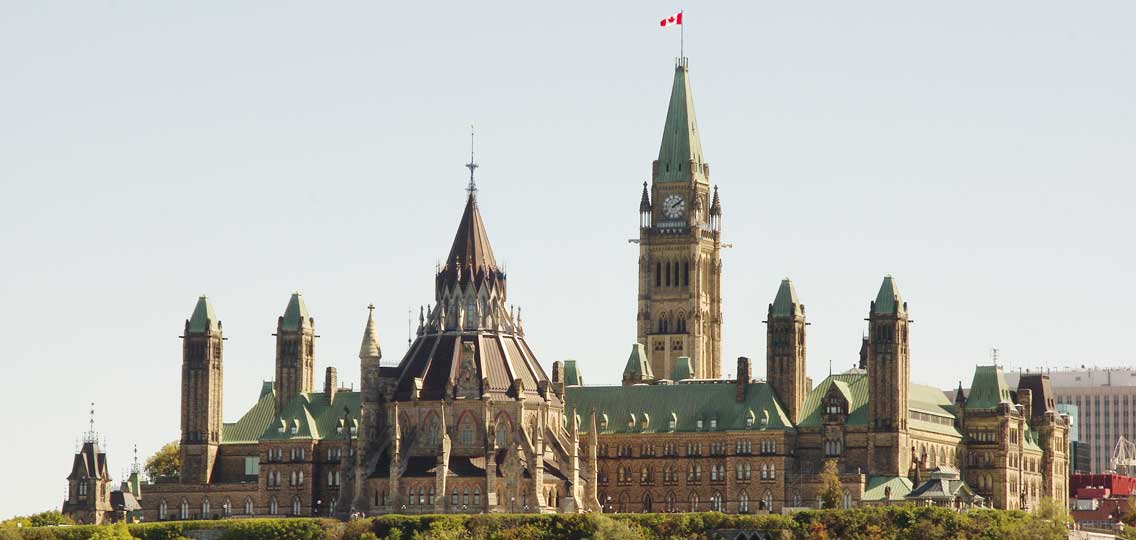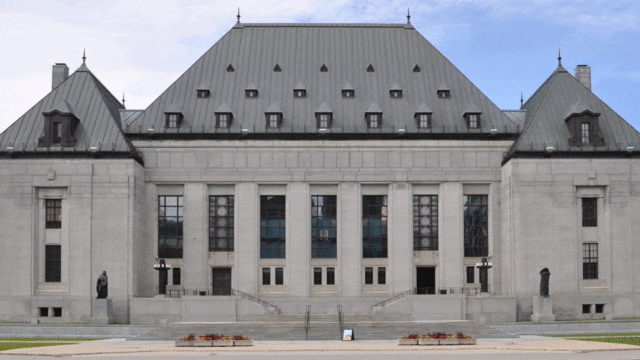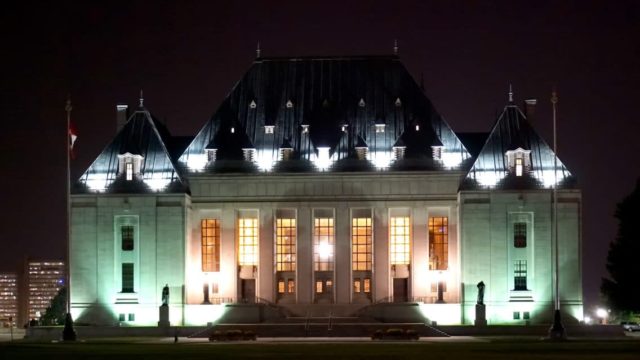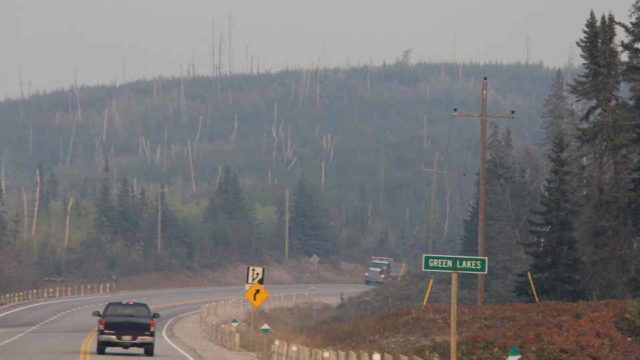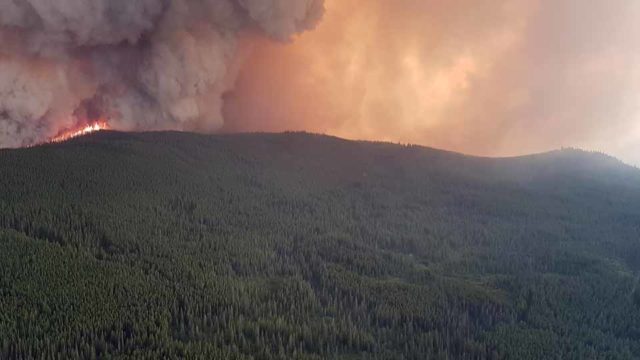Less than a week after Conservative party members voted to deny the reality of climate change, the Supreme Court of Canada (SCC) handed down one of the most significant climate-related rulings in our nation’s history.
On Mar. 25, Canada’s highest court ruled that the Greenhouse Gas Pollution Pricing Act is constitutionally-sound and essential in the fight against the climate crisis.
“Climate change is real. It is caused by greenhouse gas emissions resulting from human activities, and it poses a grave threat to humanity’s future. The only way to address the threat of climate change is to reduce greenhouse gas emissions,” the decision states.
The Court’s decision sends a clear message to those who continue to politicise the climate emergency: There should be no debate or politicking when it comes to the reality of climate change and or the grave threat it poses to humanity’s future.
This is a precedent-setting win for the climate and Canadians. We could not have done it without the ongoing support of people like you.
As we were analyzing the 405-page decision last week, we asked the Ecojustice community to send us your questions about the ruling and its significance. Here are your questions, answered.
Can you explain what this decision means for Canada’s ability to meet its climate commitments?
To date, significant emissions reductions in some provinces have been undermined by inadequate climate plans and increased emissions in provinces that refused to take part in the cooperative, pan-Canadian approach.
Alberta, Ontario and Saskatchewan either withdrew from or never signed the 2016 Pan Canadian Framework on Clean Growth and Climate Change, a commitment by all provinces to adhere to a national carbon price to reduce GHG emissions. Ontario then scrapped its previous climate programs and ambitions, and emissions in Alberta and Saskatchewan have risen steadily since 2005.
That’s what makes the SCC’s decision so important. By confirming that the federal government has the legal authority to take coordinated, national action and impose a minimum carbon price, Canada can ensure that no province is a stumbling block to progress being made in other parts of the country.
Will there be any more provincial cases coming forward to challenge the Greenhouse Gas Pollution Pricing Act?
The controversy over the federal government’s ability to take a national approach to tackling climate change is an issue that wound its way through lower courts in Saskatchewan, Ontario, and Alberta before finally being heard by Canada’s highest court last fall.
Since the SCC is Canada’s final judicial resort for legal cases, this means that there is no further legal debate on whether it is constitutional for the federal government to take national, coordinated action to price carbon.
But that doesn’t mean there can’t be challenges on other grounds. For instance, though the Greenhouse Gas Pollution Pricing Act is unquestionably constitutional, Manitoba alleges that it was unfair for Ottawa to impose the national standard on it.
You can count on Ecojustice to continue to be there to hold governments to account for their duty to tackle climate change, using the best tools we have.
What did the dissenting judges say?
While three judges dissented and found the legislation unconstitutional, none of them denied the importance or severity of climate change.
One of the dissenters agreed Parliament has constitutional power to establish minimum national standards of price stringency to reduce GHG emissions. That judge only objected to the level of executive discretion in the statute, which the Chief Justice countered by noting that all exercises of discretion under the Greenhouse Gas Pollution Pricing Act must respect the statutory purpose: setting minimum levels of price stringency for emissions. Any decisions that do not respect the fundamental purpose are legally vulnerable.
The other two judges found the subject matter of the Greenhouse Gas Pollution Pricing Act to fall within provincial, not federal, authority.
If another government were elected, could they lessen the impact of the Greenhouse Gas Pollution Pricing Act on polluters?
If elected, another government could come in and cancel the Greenhouse Gas Pollution Pricing Act, but at this stage in the game it would be risky both politically and legally.
A survey from Abacus Data, shows that 82 per cent of Canadians say climate change is a serious problem. Meanwhile an Environics poll found that the majority of Canadians (61 per cent) think strict emissions reductions targets are necessary if governments are to effectively reduce greenhouse gas emissions.
What these numbers tell us is that Canadians are concerned about climate change and are counting on their governments to present a unified front to combat the climate emergency and defend nature.
We also must consider that with the new administration in the U.S. and its renewed commitment to climate action, falling out of step with our biggest trading partner could be detrimental. While the Biden administration is not explicitly proposing a carbon price, it is doing so indirectly by weighing the social cost of carbon pollution.
On the legal side, repealing the Greenhouse Gas Pollution Pricing Act could engage Charter and Indigenous rights. The question being asked of the court would then become what constitutional duties governments have to mitigate climate risk, as opposed to whether the government can do something, which was the question before the SCC last fall. Ecojustice has already brought a constitutional challenge against Ontario’s failure to address climate change.
Will this ruling support a requirement for the government to impose a moratorium on fossil fuel extraction, processing and/or distribution?
The SCC’s decision will not directly change the approval of specific projects, but the reality is that new carbon-intensive projects will have to consider the price of emissions and whether they see it as a worthwhile investment. This will force project proponents to either do what is necessary to reduce emissions, or projects will be weeded out.
The Greenhouse Gas Pollution Pricing Act is not the only law in our legal toolkit that will help ensure climate considerations are accounted for.
In late February, I, along with my colleague Anna McIntosh, were in court fighting to defend the Impact Assessment Act (IAA) and its regulations.
The legislation sets out the factors that determine whether a project’s effects on areas of federal jurisdiction such as fish, oceans, and migratory birds, are in the public interest. The law mandates consideration of Indigenous rights, climate commitments, sustainability, cumulative impacts, and mitigation.
We need to make sure that existing environmental laws, like the Greenhouse Gas Pollution Pricing Act and Impact Assessment Act, and the Canadian Net-Zero Emissions Accountability Act, which is currently making its way through the Parliamentary process, are implemented to their fullest extent if Canada is to get to net-zero by 2050.
Can you explain where the flow of money goes from the Greenhouse Gas Pollution Pricing Act and whether it’ll end up costing Canadians?
The Greenhouse Gas Pollution Pricing Act is not about increasing costs for Canadians. It is about recognizing that pollution has a cost and seeks to foster cleaner growth and a more sustainable future.
Under the federal approach to pricing carbon, all direct proceeds are returned to the province or territory of origin. The system aims to offset most of the additional consumer costs through federal tax rebates – giving people that have a more fossil-fuel-intensive lifestyle an incentive to change their habits and save money.
What’s next?
The SCC has made the federal government’s role in fighting climate change clear. It’s now time for provinces, and their premiers to get on board and start working together to tackle the climate emergency.
As always, you can count on Ecojustice to be there, pushing governments at every level to increase their climate ambition and protect the health, security, and well-being of their residents.
This blog was written with contributions from Venetia Jones, of Ecojustice’s communications team.

